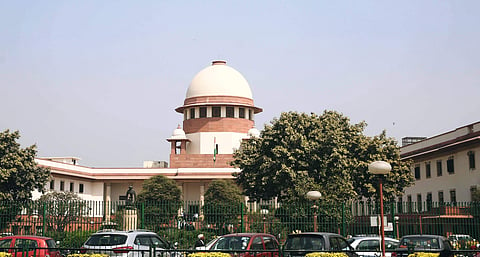

NEW DELHI: The Supreme Court today termed as "grave" the rising incidents of rioting and vandalism of properties during protests across the country and said that it will not wait for the government to amend the law.
The observation came when Attorney General K K Venugopal told the bench headed by Chief Justice Dipak Misra that riots and protests are happening almost every week in one or other part of the country and referred to recent violent incidents involving kanwariyas.
"Kanwariyas are overturning vehicles in Delhi. When the film 'Padmavat' was to be released, one group gave an open threat that it will cut the nose of the lead actress. Nothing has happened.No FIR," the law officer told the bench which also comprised justices A M Khanwilkar and D Y Chandrachud.
Venugopal referred to protests on the Maratha reservation in Maharashtra, nationwide violence following the apex court verdict in the SC/ST matter.
"Then what is your suggestion," the bench asked the top law officer.
"Fix the responsibility on the officers concerned like Superintendent of Police," Venugopal said and referred to an illustration and said that unauthorised constructions in Delhi have stopped after it was decided that the DDA officer concerned would be held accountable for such construction in his or her area.
He then said that the government has been contemplating an amendment in the existing law to deal with such kind of protests and asked the courts to allow the legislature to change the law suitably. However, the bench denied got furious and said it will not wait for the legislation.
The apex court, in 2007, had taken a serious note of various incidents of large scale destruction of public and private properties in the name of "agitations, bandhs, and hartals" and had initiated suo motu (on its own) proceedings and had come out with guidelines on the issue in 2009.
It had considered the reports of two committees headed by former apex court judge K T Thomas and senior lawyer F S Nariman respectively.
It had said that organisers of any protest would be personally held accountable for the loss of private and public properties.
The organisers shall meet the police to review and revise the route to be taken and to lay down conditions for a peaceful march or protest, it had said.
All weapons, including knives, batons and the like shall be prohibited, it had said, adding "An undertaking is to be provided by the organisers to ensure a peaceful march with marshals at each relevant junction".
"The police and state government shall ensure videography of such protests to the maximum extent possible," it said, adding, "the person in charge to supervise the demonstration shall be the SP (if the situation is confined to the district) and the highest police officer in the state, where the situation stretches beyond one district".